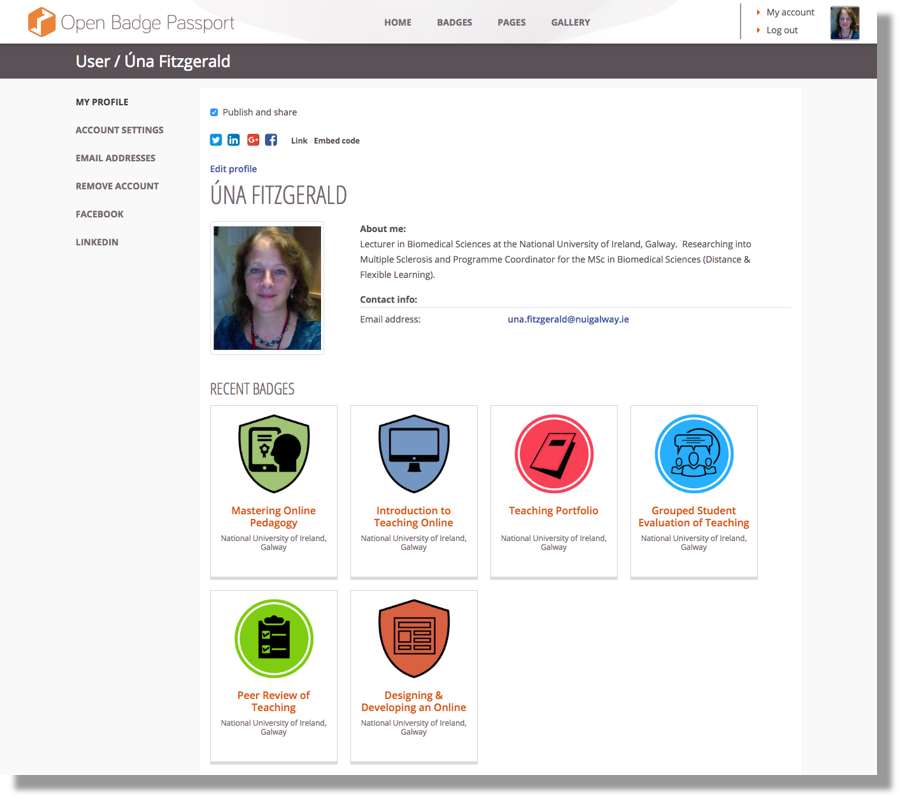Open (Digital) Badges
Micro-credentials to recognise achievementBadges as records of achievement
Open Badges are a means of recognising achievement and effort. This might include reaching a certain standard or level in a course, being able to demonstrate a particular skill, knowledge or achievement, or certifying other forms of training. Rather than having the broad sweep of a certificate, a degree, or other qualification, badges are associated with specific skills or knowledge on a more finely grained basis. Indeed, this aspect is captured in the alternative nomenclature: micro-credentials – a term which has somewhat more purchase with those who are put off by the informality of the ‘badges’ metaphor and its associations with scouts, computer games, etc.
Such digital badges are usually designed to be robust and secure, ensuring that they cannot be counterfeited and that the learning to which they testify can be scrutinised through recorded evidence or links to a formal training curriculum and provider. The adoption of the ‘Open Badges Framework,’ which was developed by the Mozilla Foundation (a non-profit organisation) and which is now promoted via the Badge Alliance and the IMS Global Learning Consortium, has helped considerably in the adoption and spread of digital badges as a form of educational credential.
Many Virtual Learning Environments/Learning Management Systems (eg Blackboard, Moodle, Canvas, etc) now provide the technology to issue digital badges and institutions and individual academics have been piloting their use in many subject disciplines and levels. They are also increasingly being seen as of value in continuing professional development and staff training.
Managing your Badges
Of course, collecting badges is fine, but what can you actually do with them, particularly the embedded information (rather than just the picture!) ? Well, there are a number of tools which are compliant with the Open Badge framework, and the number of websites and professional profile tools which can incorporate badges is growing rapidly.
The most basic tool for collecting your badges is Mozilla’s Backpack and badges stored there can be collated into collections, shared publicly, and distributed across sites and social media.
In All Aboard, we have also been using the Open Badge Passport, which can display badges and allows you also to produce additional pages with information, such as your CV, for example. LinkedIn, Facebook, PathBrite, PebblePad, and many other online personal and professional profiles/portfolios can also easily manage Open Badges.
Our Support of Badges
In All Aboard we’ve been using badges in association with our digital skills framework, each of our lessons (‘stations’) having a badge, or badges, associated with them. However, we’ve also been promoting the use of badges more widely in higher education, since they are an excellent example of technology becoming part of educational practice. We have provided training, badge design, and advice on best practice in the use of badges in a wide range of applications, spanning student volunteering, academic skills, to the professional development of those who teach and research in higher education. The examples below give just a flavour of the breadth of topics covered.
BadgePack (Version 1)
If you’re interested in trialing the use of digital badges in your institution, why not download our handy toolkit, packed with resources on how to get started with badges?


